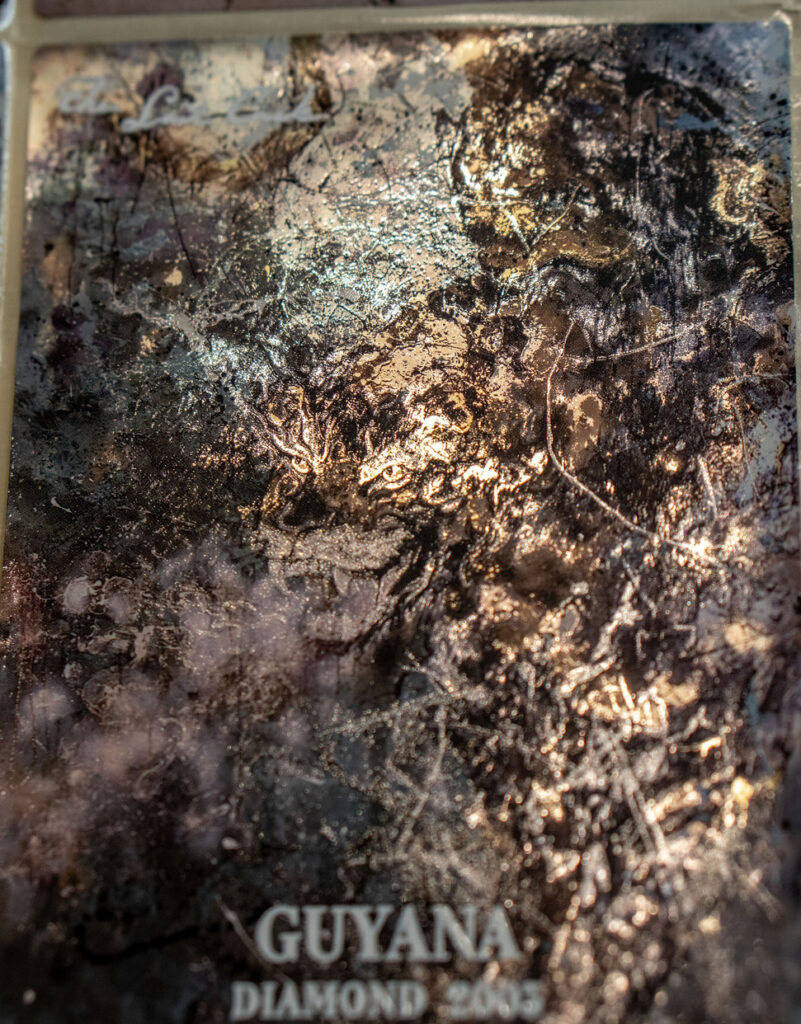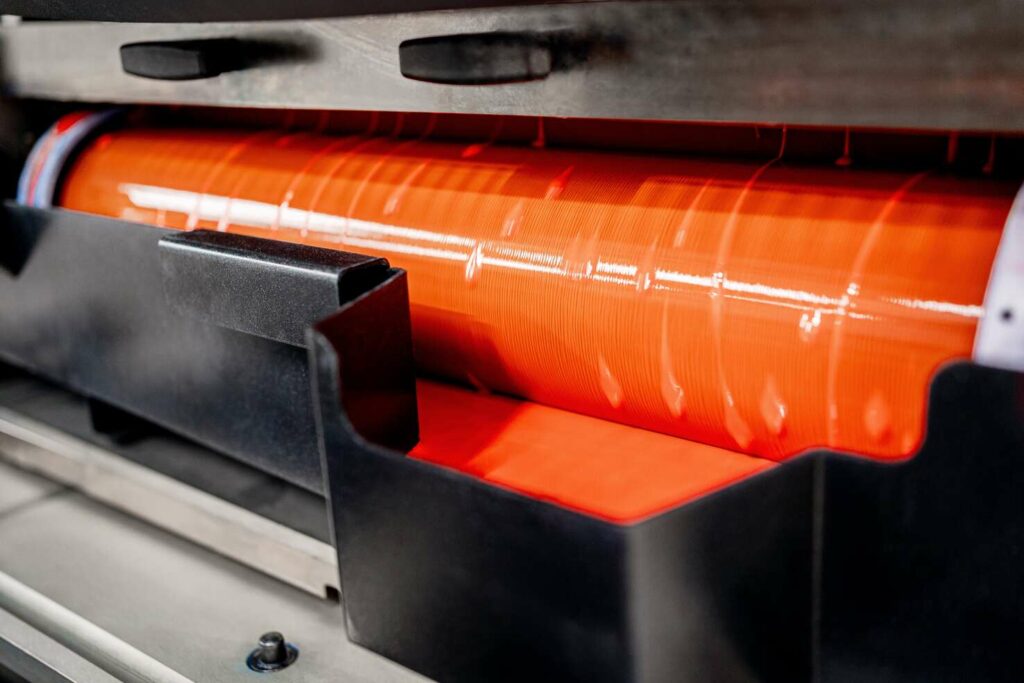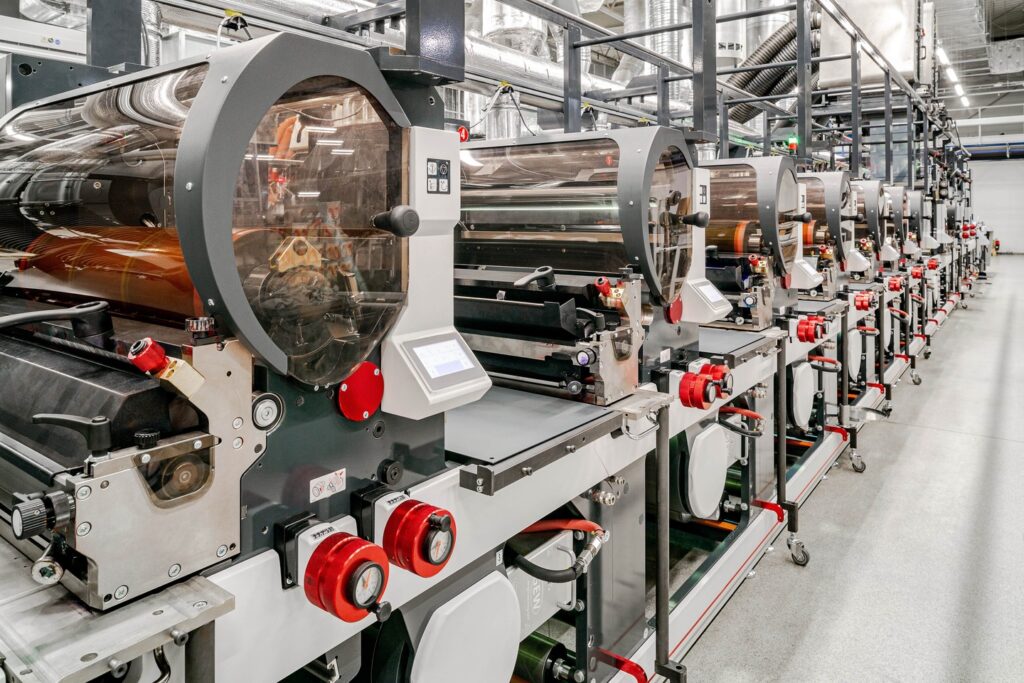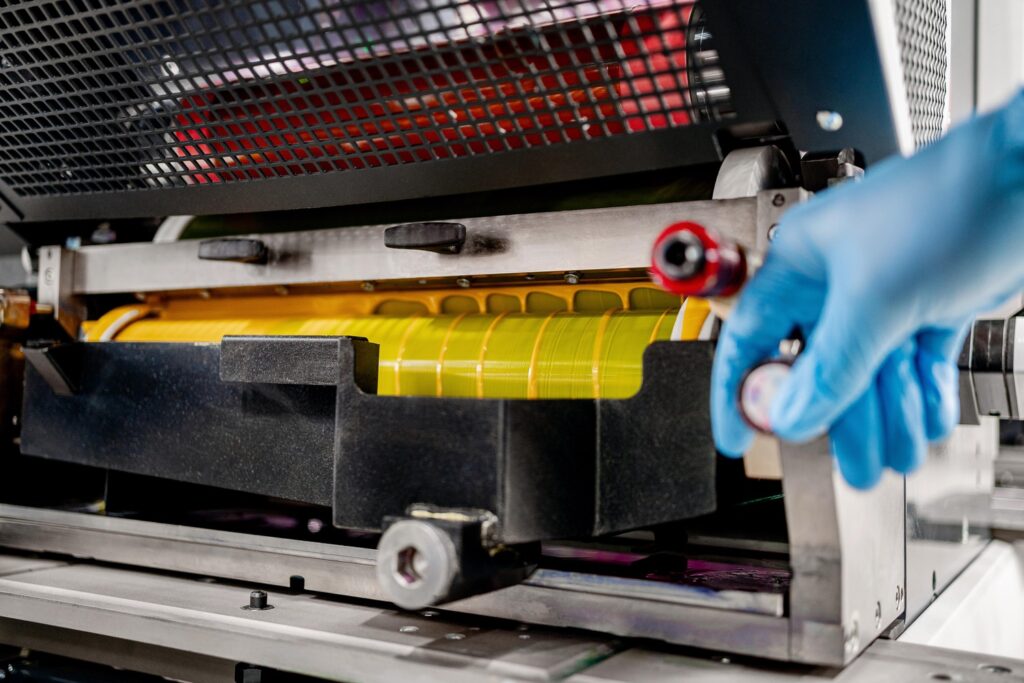Month: July 2024
A hybrid approach to label printing encourages innovation and flexibility in the client-customer relationship, delivering unique, elegant and durable labels for Distilia’s high-end, collectible bottles.
Masterpress has recently completed a niche labelling project for Distilia, an independent bottler of high-quality spirits specialising in selling unique bottles of rare, collectible alcohols. The project involved the production of five series of 250 exclusive labels using hybrid printing – Masterpress’s technique that combined digital printing, screen printing, lamination and varnishing – to achieve a distinctive, touch-sensitive, durable and visually striking effect.
Distilia, known for sourcing unique barrels and bottling exclusive batches, required labels that would not only mirror the luxury and exclusivity of their products but also captivate investors and enthusiasts at auctions. Unlike standard retail labels, these had to demonstrate superior quality and durability – essential characteristics for supreme and collectible items.
The company approached Masterpress with a pre-designed label featuring Yu Chaun’s real-life painting, aiming to integrate metallic elements and extenuate the painting’s intricate details. Considering the unique nature of the request, the challenge for Masterpress was to find the right technology to turn this vision into a captivating and exclusive label. “Our goal was to create something truly special – a label that reflects the heritage and sophistication of Distilia’s products while pushing the boundaries of conventional label printing and design,” said Artur Lesiński, business development manager at Masterpress.
“We wanted labels inspired by painted artwork that would capture the essence of our collectible spirits, showcasing their exclusivity and enduring quality,” said Jakub Bagiński, managing director of Distilia. “We had a clear vision and a ready design, but needed a partner that could turn this into reality. Masterpress achieved this with a blend of artistry and advanced printing techniques, which managed to capture even the paint brushes of the original painting and enhance the allure and premium nature of our products.”
“The project was something new for us, considering the label’s niche purpose and the fact we had to reproduce real art with all its details. At the same time, Distilia’s flexibility on how we should implement the label offered us an opportunity to see where we stand when it comes to our creative and technological capabilities,” said Aleksander Gajecki, digital printing manager at Masterpress.
Masterpress combined multiple technologies – digital printing, screen printing, lamination and varnishing. This combination of digital printing with different finishing techniques enabled the company to achieve a distinctive, touch-sensitive, and visually striking label. The label was printed on silver paper with a soft touch and laminate finish, creating a combination of paper and foil to make the connection soft and noble.

Thanks to digital printing’s flexibility and capabilities, Masterpress was able to test various solutions and complete the adjustments quicker, while reducing costs – efficiently consulting new versions with Distilia. Additionally, the use of digital printing contributed to reduced water, energy and paint consumption, coupled with less waste throughout the manufacturing process.
“Masterpress’s printing capabilities [digital printing] allowed for unprecedented levels of detail and colour fidelity. Each label meticulously incorporates special lacquers and metallic finishes, achieving a noble shade of gold, creating a really unique, tactile experience,” Distilia’s managing director Jakub Baginski highlighted.
“Trickling down” innovation for unique solutions and results
“Perhaps the best way to describe our experience working with Distilia on this project is ‘trickle down innovation’ – the technological freedom from the client gave us space for innovative hybrid solutions, and at the same time, room to provide flexibility across the whole manufacturer-client relationship,” said Artur Lesiński at Masterpress. “For example, we were able to deliver a high level of overprint, giving Distilia’s graphic designers more room to test new designs – and, thus, ‘trickling down’ innovation across our cooperation chain.”
Masterpress has comprehensively met Distilia’s expectations – from unique endurance and elegance to intricate aspects linked to the product’s advertisement, the company’s Managing Director reaffirmed. “Masterpress’s hybrid approach ensured that our designers had no limitations in the label design process,” Mr. Baginski added. “We wanted to reproduce the original images as best as possible. At the same time, the final visual effects were also key for us. We needed a label that looks as good – and even better – on pictures as it does on the shelf. Masterpress provided us with that exact product concept.”
“We always strive to meet our client’s expectations, in which the high-quality of the label plays a crucial role,” Mr. Baginski emphasised. “We were thus looking for a partner that could deliver a label that showcases the marriage of art, exclusive collection and consumption. Distilia is pleased to have found that in Masterpress with their innovative hybrid approach.”
Following the success of this project, Masterpress and Distilia have extended their collaboration, and are now working on a new label product.

About Distilia
Founded in 2018 by Jakub Bagiński and Piotr Kossowski, who together bring over ten years of experience in the premium spirits industry, Distilia has quickly made a significant impact. The company has become a notable brand among independent bottlers, providing official, bespoke, and white-label editions of whisky, rum, cognac, and armagnac. The company’s high-quality spirits have received numerous awards and developed a loyal customer base. By combining art and fine spirits, Distilia has launched impressive series such as The Sins Series, The Last Cask Series, and Karuizawa Five Decades. These products captivate both connoisseurs and collectors with their artistic presentation, including finely crafted wooden boxes, decorated bottles, elegant labels, and wax details. Distilia stands for uncompromising quality and unique products. For more details, visit www.distilia.com.

Siegwerk, one of the leading global providers of printing inks and coatings for packaging applications and labels, has announced the launch of its first full UV flexo deinking system for the European market: CIRKIT CLEARPRIME UV E02.
The new primer technology for non-food packaging applications offers a validated solution for safe and economic deinking of UV-printed self-adhesive labels (PSL). As a result, it improves the recyclability of labeled plastic packaging and enables the recovery of high-quality recyclates that are suitable for reuse in non-food packaging applications.
Although UV inks offer some advantageous properties for printing labels, they also pose a challenge for the subsequent recycling. “Depending on the substrate, UV inks are often very difficult to remove and can therefore lead to contaminations of recyclates, which significantly limits their further reuse,” explains Marc Larvor, Head of Technology Narrow EMEA at Siegwerk. “As a result, it is not surprising that UV-printed packaging has so far been considered as problematic in terms of a Circular Economy.” With CIRKIT CLEARPRIME UV E02, Siegwerk now offers a primer solution that specifically addresses this challenge. By enabling easy and safe deinking of UV-printed self-adhesive labels, it eliminates the need for prior label removal if the used plastics are compatible. “Such combined mechanical recycling of labels and plastic packaging can not only help to increase recycling rates, but also to save time and costs,” adds Marc Larvor. “Thereby, our new UV flexo deinking primer actively contributes to realize high-quality recyclates for circular waste streams.”

In a first field test with Masterpress Siegwerk’s new deinking primer has proven its effectiveness in all aspects. Masterpress’ research and development (R&D) experts used uncoated transparent or white pressure sensitive labels (PSL) made of PE85 and applied Siegwerk’s CIRKIT CLEARPRIME UV E02 followed by bleeding resistant UV flexo inks and an UV flexo OPV. First, the primer created a perfect adhesion between substrate and inks and later enabled full ink and varnish removal of the printed polyethylene (PE) film at standard deinking conditions based on the QT 507 washing protocol of the European PET Bottle Platform (EPBP). The primer layer also dissolved residue-free in the hot washing process and thus proved its ability to generate high-quality transparent or white recyclates, while the used non-bleeding ink formulations ensured a clean and reusable washing solution.
In-house laboratory tests at Masterpress and Siegwerk have shown great recyclate results underlining the effectiveness of the new deinking primer. “Consistently investing in its R&D laboratory, Masterpress brings state-of-the-art capabilities to test and trial new inks or materials before they enter the market. We are dedicated to advancing innovation within the shrink sleeve and self-adhesive label industry and are well positioned to help accelerate the commercialization of new, sustainable, recyclable products and materials on the market,” said Katarzyna Wasilewska, research and development manager at Masterpress. “Our tests confirmed an impressive recyclability of the UV-printed PE labels. Compared to other labels with no deinking technology, we could observe that contaminations of plastic recyclates due to discoloration could be massively reduced by using Siegwerk’s UV Deinking Primer.”

Therewith, CIRKIT CLEARPRIME UV E02 makes a significant contribution to improving the quality of recyclates and increasing their reusability. It works perfectly with the company’s established Sicura flexo series such as the non-low migration Sicura Flex 39-8 or the dual-curing series Sicura Flex Dual Cure. In addition, the new primer is compliant with different film materials and allows an inline printing of deinkable materials in a 100% UV-Flexo press setup keeping the complexity for users as low as possible. “With only three minutes, the new UV flexo primer even offers a deinking speed as fast as a water-based deinking primer making it to a great alternative for converters who are using a pure UV flexo press and are not able to process a water-based primer,” adds Katarzyna Wasilewska.
With CIRKIT CLEARPRIME UV E02, Siegwerk has not only added another functional coating solution to its CIRKIT product portfolio for packaging designs in the sense of a Circular Economy, but is also continuing to drive deinking as a new industry standard to further improve the recyclability of plastic packaging. Currently, the company’s portfolio of circular coatings already covers several water-based and solvent-based technologies for different applications, substrates, coating processes and performances: From barrier coatings against liquids, oil and grease, water vapor, oxygen, and UV light through heat seal and protection coatings to delamination and deinking primers.
To learn more about Siegwerk’s coating offering, please visit https://www.siegwerk.com/en/inks-coatings/coatings.html
